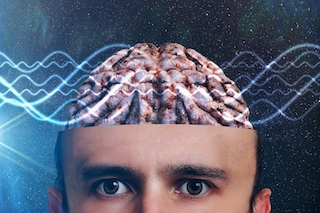 For centuries, spiritual gurus and scientists alike have been trying to answer the age old question of human consciousness: What is it? Where is it? Does it even exist? Now, a team of scientific researchers from the RIKEN Center for Brain Science in Japan have discovered what they believe could be the area of the brain involved in generating consciousness.
For centuries, spiritual gurus and scientists alike have been trying to answer the age old question of human consciousness: What is it? Where is it? Does it even exist? Now, a team of scientific researchers from the RIKEN Center for Brain Science in Japan have discovered what they believe could be the area of the brain involved in generating consciousness.
The study, titled: The claustrum coordinates cortical slow-wave activity, was published in the Journal of Nature Neuroscience. Researchers set out to elucidate the function of a mysterious brain region called the claustrum.
“Many researchers postulated hypotheses on the function of the claustrum, such as the seat of consciousness, the attentional load allocator, the regulator of brain oscillation, etc.,” study author Dr. Yoshihiro Yoshihara told us.”It was difficult to validate the above hypotheses, due to a thin, irregular structure of the claustrum and lack of molecular, genetic markers for the claustrum. We wanted to attack this interesting, big question.”
According to the Cambridge dictionary, consciousness is defined as the state of being awake and aware of one’s existence. There’s currently a $20 million consciousness battle of sorts between scientists backed by Seattle neuroscientist Christof Koch, head of the Allen Institute for Brain Research. Researchers participating in the contest will look at varying theories of consciousness. Some theories being explored are the Global Workspace Theory which provides an algorithmic view of consciousness. Another theory being examined is the Integrated Information Theory which purports that which takes a globalist view of consciousness believing consciousness happens at the back of the brain. There are six laboratories across the globe that will run test on over 500 participants.
Dr. Yoshihara has been a team leader at RIKEN for over a decade. He works out of the Laboratory for Neurobiology of the Synapse. In 2006, he received the Young Investigator Award from the Japanese Association for the Study of Taste and Smell.
“Serendipitously, we could generate transgenic mice in which Cre recombinase is specifically expressed in the claustral neurons,” Dr. Yoshihara told us. “This enabled us to genetically visualize and manipulate the claustral neurons selectively.”
In 2016, Harvard scientists believed they found the seat of consciousness with three networks in the human brain stem region. Participants in the study were analyzed, all 36 of them, according to their brainstem lesions. While 12 of them were in an unconscious state, the other 24 were conscious. The team of researchers set out to determine why some of the participants remained conscious despite their injuries while others were not able to. They found that there was one area of the brainstem related to coma called the rostral dorsolateral pontine tegmentum. The researchers said it’s exciting information but more research was needed to further their discoveries.
Once relegated to philosophers and clerics, the question of consciousness has now become a scientific pursuit. In an article titled: The Status and Future of Consciousness Research, published in the Journal of Frontiers in Psychology, researching consciousness has proven to be a real scientific endeavour producing meaningful results. But consciousness research is still in its infancy and there is still much more research to be done.
“We were extremely surprised with the results,” Dr. Yoshihara told us. “The results of our study showed that optogenetic stimulation of the claustral neurons induced global silencing of the cortical neurons, so-called "down-state" across widespread cortical areas. Our results will pave a new avenue in the research field of consciousness, sleep and brain oscillations.”
Patricia Tomasi is a mom, maternal mental health advocate, journalist, and speaker. She writes regularly for the Huffington Post Canada, focusing primarily on maternal mental health after suffering from severe postpartum anxiety twice. You can find her Huffington Post biography here. Patricia is also a Patient Expert Advisor for the North American-based, Maternal Mental Health Research Collective and is the founder of the online peer support group - Facebook Postpartum Depression & Anxiety Support Group - with over 1500 members worldwide. Blog: www.patriciatomasiblog.wordpress.com
Email: tomasi.patricia@gmail.com